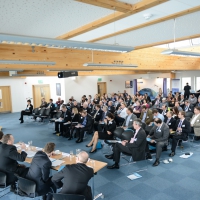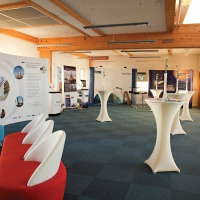A “radical approach” is required from government to drive the major infrastructure and system transformation needed to decarbonise Great Britain’s electricity system by 2030, according to the National Engineering Policy Centre (NEPC).
In a new report, an independent working group drawn from the NEPC and led by the Royal Academy of Engineering urges policymakers to make accelerating the delivery of grid, power generation and flexibility infrastructure a “national mission”, similar to the work of the vaccines taskforce during Covid-19.
The study, titled Rapid Decarbonisation of the GB Electricity System, states “strong central leadership and governance” will be required to build public and private support for the vision, which should form a central pillar of the new government’s industrial strategy.
A front-footed approach to procurement and regulation is meanwhile needed to ensure the UK can get ahead in the global race to decarbonise electricity, while policymakers must tackle “difficult decisions” on planning, consenting and connection delays while building public support.
Finally, government should retain a long-term view to ensure that the intense focus on delivery towards 2030 does not delay near-term actions needed to unlock the best options for post-2030, the NEPC said.
“There is no time to waste in delivering progress towards this crucial aspect of a net zero energy system,” said Royal Academy of Engineering president Jim McDonald.
“Decarbonising electricity production, transmission and utilisation under an accelerated timeline, will not only provide societal benefits through an energy system that is less vulnerable to global disruption, but will also create an economic and competitive opportunity for the UK to lead on the infrastructure, technology and engineering skills that will shape the future.”
Delivery of a highly decarbonised electricity system by 2030 will require a sharp increase in offshore wind capacity, the report added.
It will also require the delivery of the transmission network that is already in train, and expanding onshore wind and solar generation, particularly in places where the grid already has capacity to accept new generation.
Government should engage with domestic, commercial and industrial electricity users to unlock the potential for demand to be shifted to times when wind and solar generation is highest, as well as storing electricity to smooth supply through a portfolio of storage solutions, the report states.
Anticipatory investment will be key to success, it adds, with new grid infrastructure and increased distribution capacity identified as central priorities to the 2030 mission.
Difficult choices will need to be made to reduce the time taken to deliver new grid infrastructure and connect power generation assets, the report argues, particularly around planning timelines, grid connection queue delays and supply chain constraints.
Adding renewable energy capacity in locations that can be readily accommodated without new power lines where possible and implementing a more proactive supply chain policy with clear signals to investors, are both identified as potential solutions in the report.
Beyond 2030, the NEPC highlights changes to a future energy system that cannot be delivered before 2030 but nonetheless require action this decade.
These include achieving progress on hydrogen storage and transmission, investing significantly in the distribution network to manage further electrification of heat and transport, and expansion of power generation assets, potentially including a broader range of renewables such as tidal.
The report also calls for a national engineering and technology workforce strategy to address skills deficits in the short and long term, including the need for an additional 200,000 engineers and technicians working in the energy sector by 2030.
Simon Harrison, co-chair of the independent working group and head of strategy at Mott MacDonald, said: “The scale of work required to decarbonise the electricity system in such a short period of time cannot be underestimated.
“But the precedent set by the rapid delivery of the Covid-19 vaccine shows that the collective pursuit of a national mission can put a seemingly impossible target within reach.
“A radical shift in our approach will be needed, but the engineering community has already come together to map that out in this report, and it is ready to roll up its sleeves to deliver the clean energy we need.”
Source: reNEWS.biz












